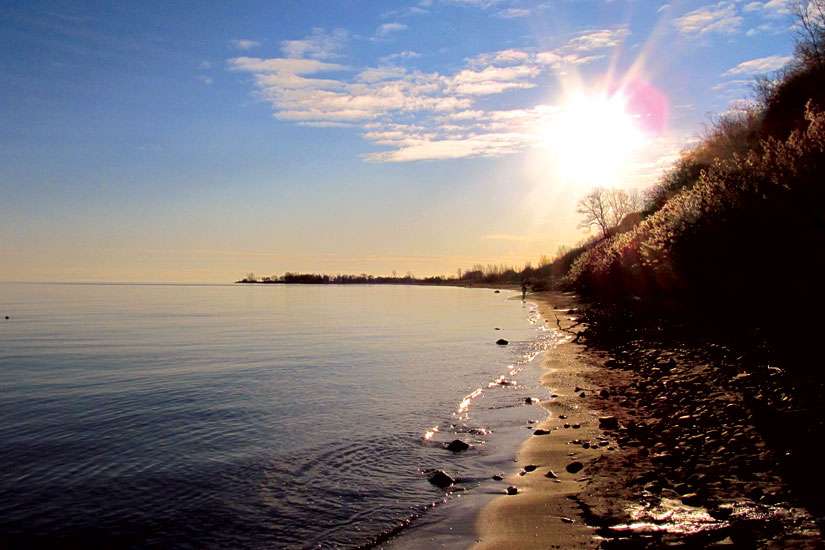In anticipation of the encyclical on the environment by Pope Francis with the English title Praise Be and due out June 18, Green Spirit TV has just released an educational video series on papal teachings about the environment, filled with concrete expressions of ecological justice by key religious and lay leaders across Canada.
This 12-part Cultivating and Caring for Creation video series is co-produced by RomanCatholicTV.com and the Justice and Peace Commission of the Canadian Conference of Catholic Bishops. It is a compelling introduction to environmental issues and the best Catholic thinking about them. Targeting all Catholics — lay and ordained — the series emphasizes a consistent ethic of life. The aim is to galvanize Canadian Catholics into action, making the connection between their faith and care for creation.
The videos are available online on YouTube (youtube.com.user/greenspirittv). They are short, ranging from seven to 12 minutes and accompanied by a study guide, reflection questions and links to web sites and Church documents.
Each program is introduced by Saskatoon Bishop Donald Bolen, chair of the CCCB’s Justice and Peace Commission. Programs take on particular themes from papal teachings on the environment, all of which are encapsulated in the CCCB document “Building a New Culture.” Bolen’s obvious love for all that exists fosters a welcoming and thoughtful tone.
But the series is not merely about papal teachings on the environment.
Interwoven with the teachings are the words of Bolen himself. He asks us to pay attention to “the prophetic voices in our own communities who are looking to the environment and its needs, who have engaged in rigourous study, who have, over the long haul, expressed deep concerns about environmental changes, and who show us some of the small steps which can be taken in our area, in our parishes, which help us to move in a direction towards a cultural renewal which will allow us to live in a new way in relation to the environment.”
The series takes us to Villa St. Joseph Retreat and Ecology Centre in Cobourg, Ont., to learn about its community ecological gardens. We hear from Scarboro Missions about the critical importance of making the connection between the destruction of the environment and the social injustices afflicting so many in the global south.
We are also invited to discover both the ecological and spiritual value of organic seeds from members at Prairie Garden Seeds, and from Kingston, Ont.’s Sisters of Providence. We get a tour of St. Gabriel’s Church in Toronto, learning about the theological significance of its environmentally sustainable architecture from the architect himself, Roberto Chiotti, a graduate of the Elliott Allen Institute of Theology and Ecology.
There is a diversity of expressions and responses to eco-spirituality and justice. We meet a parishioner who becomes engaged in mining issues and stewardship of creation through his commitment to Natural Family Planning. Another incorporates native spirituality which, in the words of Oblate missionary Archbishop Sylvain Lavoie, can help Catholics to live “in relationship with creation,” and to understand we are “related to everything in creation.”
This diversity of approaches — ranging from more traditional human-centred to those that are more Earth-centred, rooted in the wisdom of science, women and indigenous peoples — is the series’ strength. Canadians, and not just Catholics, are only beginning to realise the sheer magnitude of the ecological ruin our way of living has brought on all of creation.
It has not quite sunk into our collective psyche that we are, in the word of Benedictine monk Fr. Lawrence DeMong in Saskatoon, committing “ecocide.” We are not entirely sure what to do or how to do it.
The seemingly unpretentious, though passionate and visionary ideas presented by these videos fit into our tradition as we grope our way to re-kindling the intimacy we so desperately need with nature — with all of God’s creation.
The video series can be used by parish groups, high school or college classes without much preparation. It’s there, free and ready for use straightaway in parish halls, retreat centres, schools and homes. This will prepare our hearts and minds to reflect on the coming encyclical from Pope Francis.
(Appolloni is a lecturer in theology and ecology at Brock University in St. Catharine’s, Ont.)


